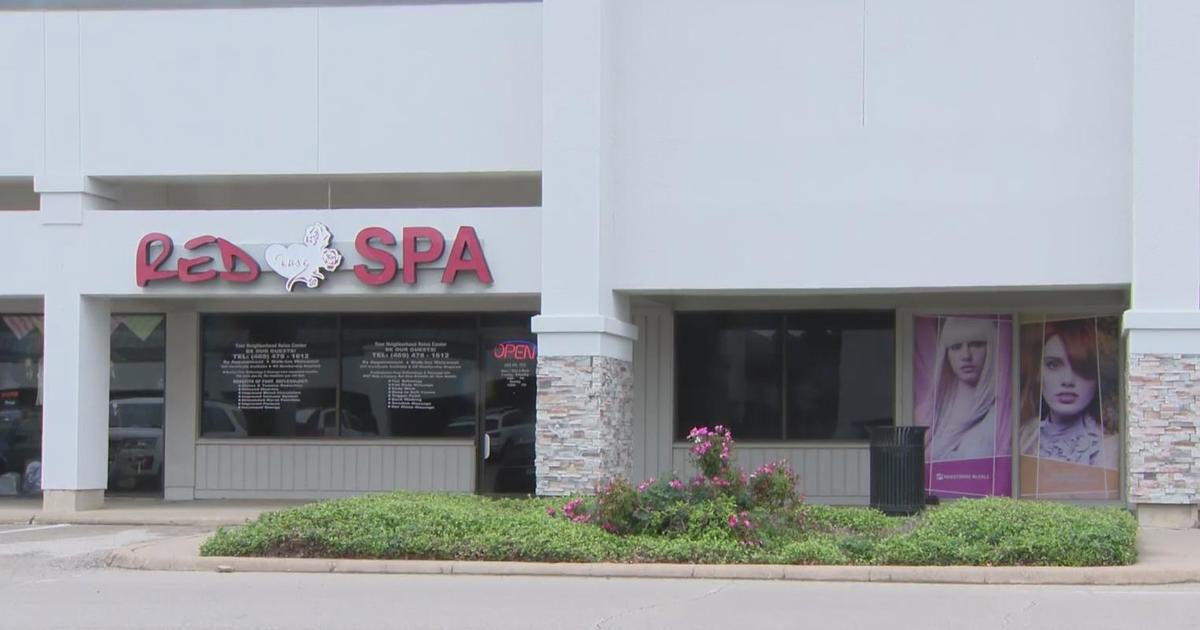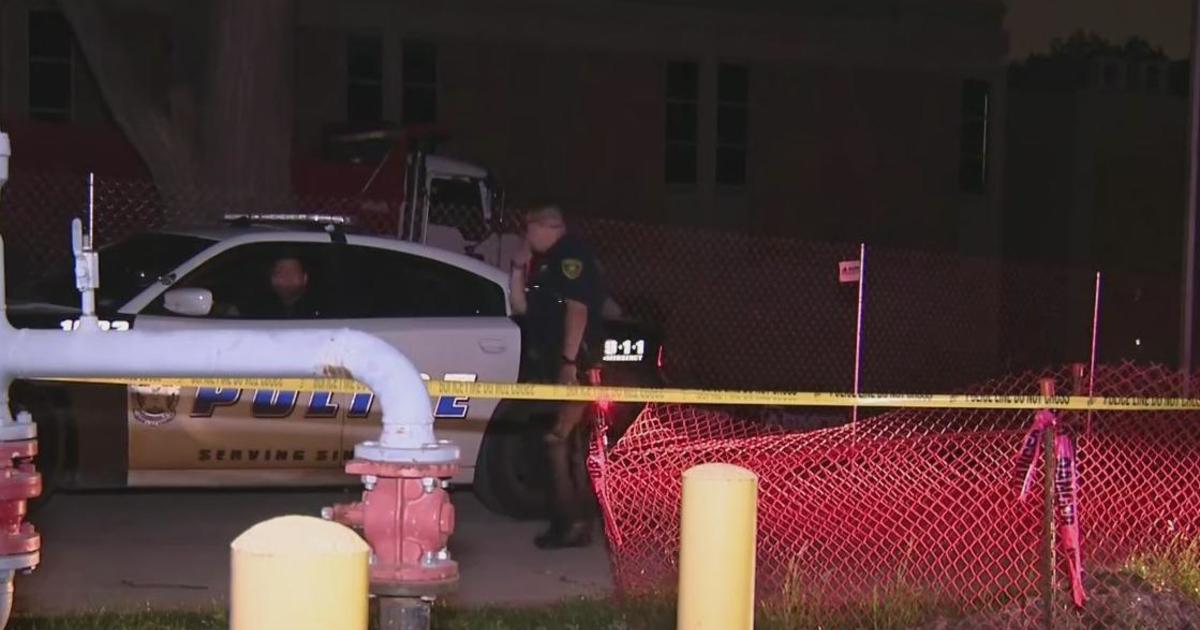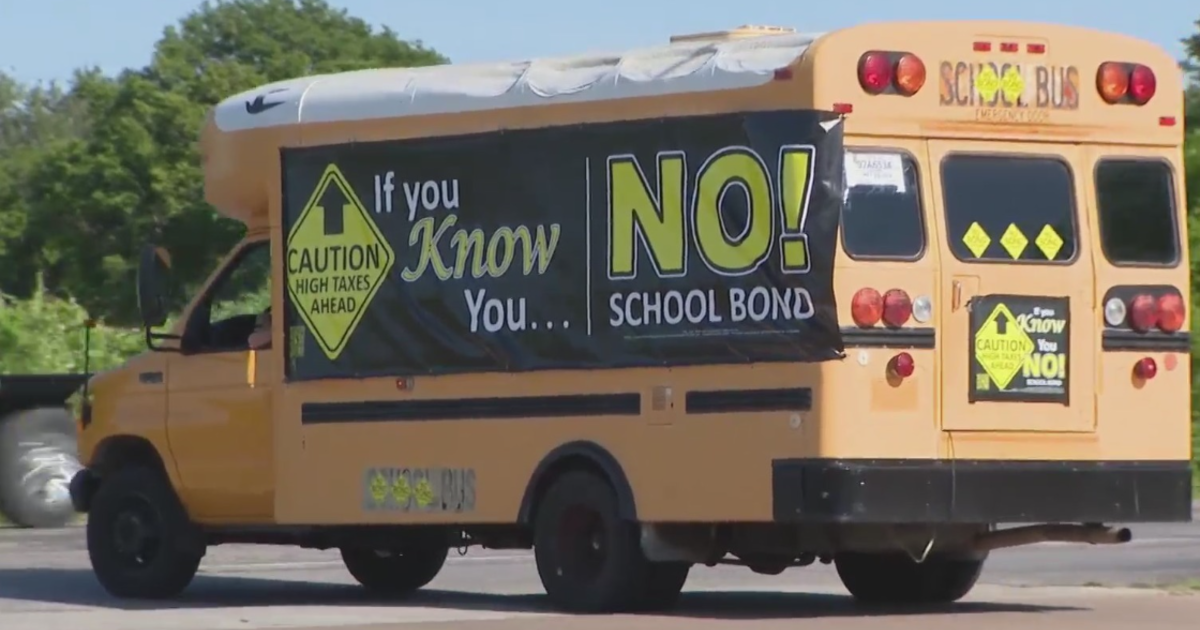Texans Still Recovering After "Cruel" Life On Iowa Turkey Farm
NORTH TEXAS (CBS 11 NEWS) - Jeff Long and Brady Watson are two special men living in North Texas and showing little sign of the awful things that happened to them for so many years.
"It was cruel," said Brady, of the life he led not too long ago, in the small farming town of Atalissa, Iowa, 800 miles north of here.
"Treated like dirt …worked like dogs," added Jeff, who shared the same experience.
They consider themselves "brothers," just like the 30 other Texas men who crammed into an old Iowa school house, converted into a leaky, rundown bunkhouse. They called it home when they weren't gutting turkeys, pulling out their hearts, before they're packaged into the grocery stores where we shop.
For the long hours, handling one dead turkey after another, the men were paid $65 a month – a salary that their supervisors said was fair.
But a year ago, a jury in Iowa agreed with the federal government in a civil lawsuit that they were taken advantage of because of their varying degrees of impairment. So Brady, Jeff and their other "brothers" were suddenly made multimillionaires – if only on paper and only for a short time – when the jury came back with a judgment of $240 million. It was the largest award ever reached in a workplace discrimination case brought forward by the federal government.
"It was a place that became a prison to them," Robert Canino, regional attorney for the Equal Employment Opportunity Commission in Dallas, said of the Iowa bunkhouse. "They were punished whenever the supervisors didn't like the work they did," said Canino, the lead lawyer in the government's case.
"They hosed them down …they made them pull weeds while they kicked them …calling them names that related to their intellectual disability," he said, in an interview with the CBS 11's I-Team.
The $240 million judgment, which was later pared down to $3.5 million because of federal cap requirements, was made against Henry's Turkey Service in the small Texas Hill Country town of Goldthwaite.
The operation in the late 1960s became an assistance program for the mentally disabled. And through the years hundreds of Texas men – including Brady and Jeff – were placed there, some from state institutions, with the promise of teaching them how to be more productive in society. They were then sent to work in a Turkey processing plant near Atalissa, where life became more difficult for Brady, Jeff and the others.
"I don't know, but they did push me down the stairs and I went down on the floor …and they pushed me down on the floor and then I hurt my leg," Jeff told Ginger Allen, the I-Team's senior investigative reporter.
Brady, in a separate interview, told the I-Team about seeing another of his "brothers" being mistreated. "Handcuffed him to the bed …couldn't get up and eat and everything …wrists were bleeding, all bruised up," he said.
Canino said: "I don't think there's any way for any of us to stand in the shoes of these men, and to really fully understand how much life they lost over those decades."
But Kenneth Henry, owner and operator of Henry's Turkey Service in Goldthwaite, told the I-Team his intentions were good. He is appealing the jury's decision in the civil trial.
"It was close to 1,500 guys that came from state schools, came from families, came from judges …we had pretty good luck with those guys," said Henry.
Asked if any of the disabled men were abused under his direct care, he said: "Never."
Henry acknowledged, however, that while he stayed in Texas, his failing health and some family setbacks caused him to lose sight of what his supervisors were doing to Brady, Jeff and the other men in Iowa. "We had these people that we believed in. We trusted them. If we've made mistakes …that was it. We trusted some people we probably shouldn't have trusted."
Although it took decades, the people of Atalissa began to realize something wasn't right with how the men were being treated behind the walls of the old, converted schoolhouse. And in early 2009, it was raided by local, state and federal authorities.
Some of the men stayed in Iowa, in places where they were now being cared for, while others – like Brady and Jeff – returned to Texas, where mostly live with family members or in group homes maintained by agencies like Mental Health Mental Retardation in Tarrant County.
In Iowa, Brady and Jeff were the best of friends. But since the raid, they hadn't seen each other …until CBS 11 News learned of their story and arranged a secret reunion near Lake Whitney.
In such endearing ways that only they could pull off, Jeff and Brady hugged, they laughed... and they called each other fat. "Last time I saw you, you were skinny," Jeff said to Brady, who quickly responded in pure acceptance, "Yeah, well, I'm not now."
Then they sat on a porch bench and shared a photo album of a past they'd just as soon forget.
(©2014 CBS Local Media, a division of CBS Radio Inc. All Rights Reserved. This material may not be published, broadcast, rewritten, or redistributed.)
Latest News:
Top Trending:
- PHOTOS: Your Pet Pictures



